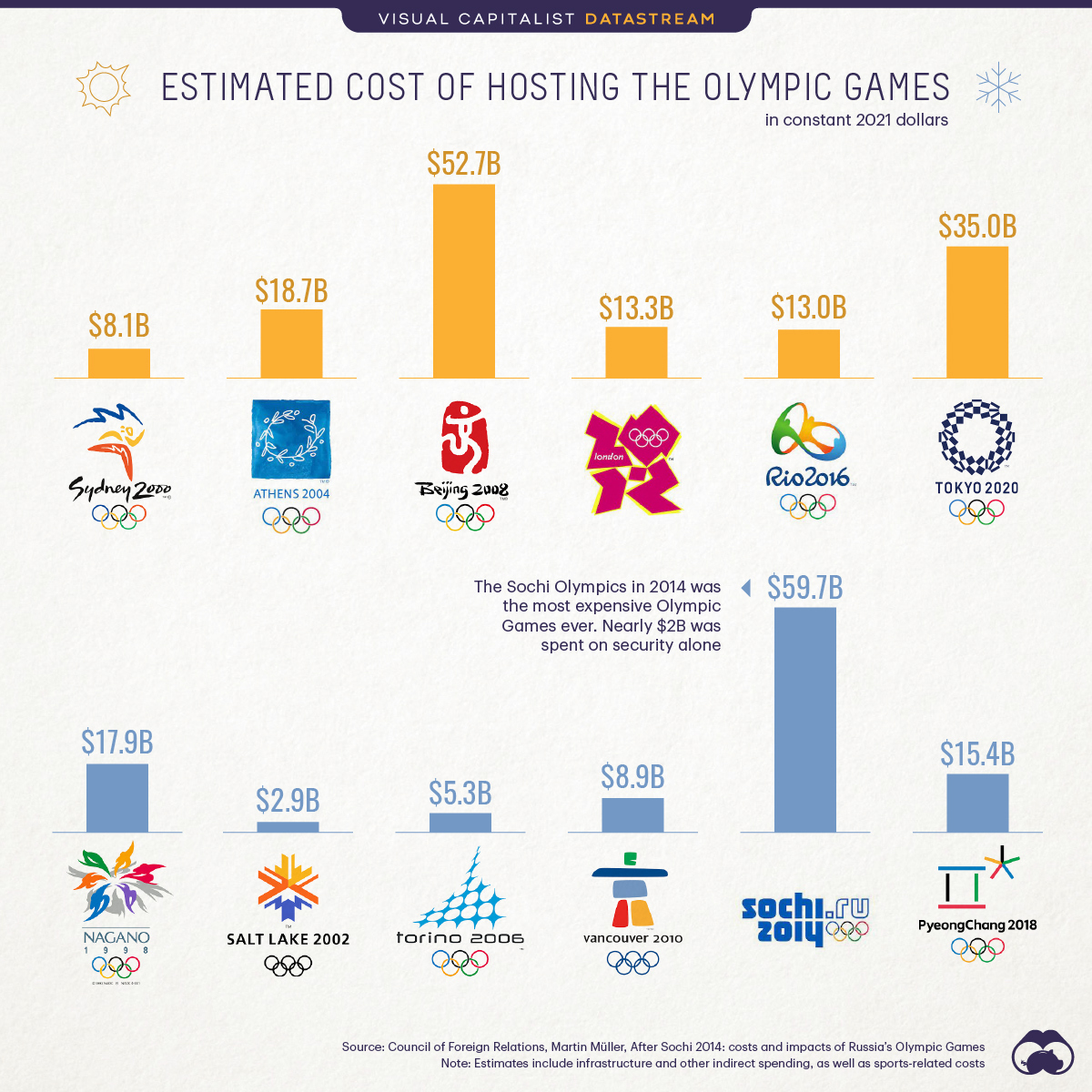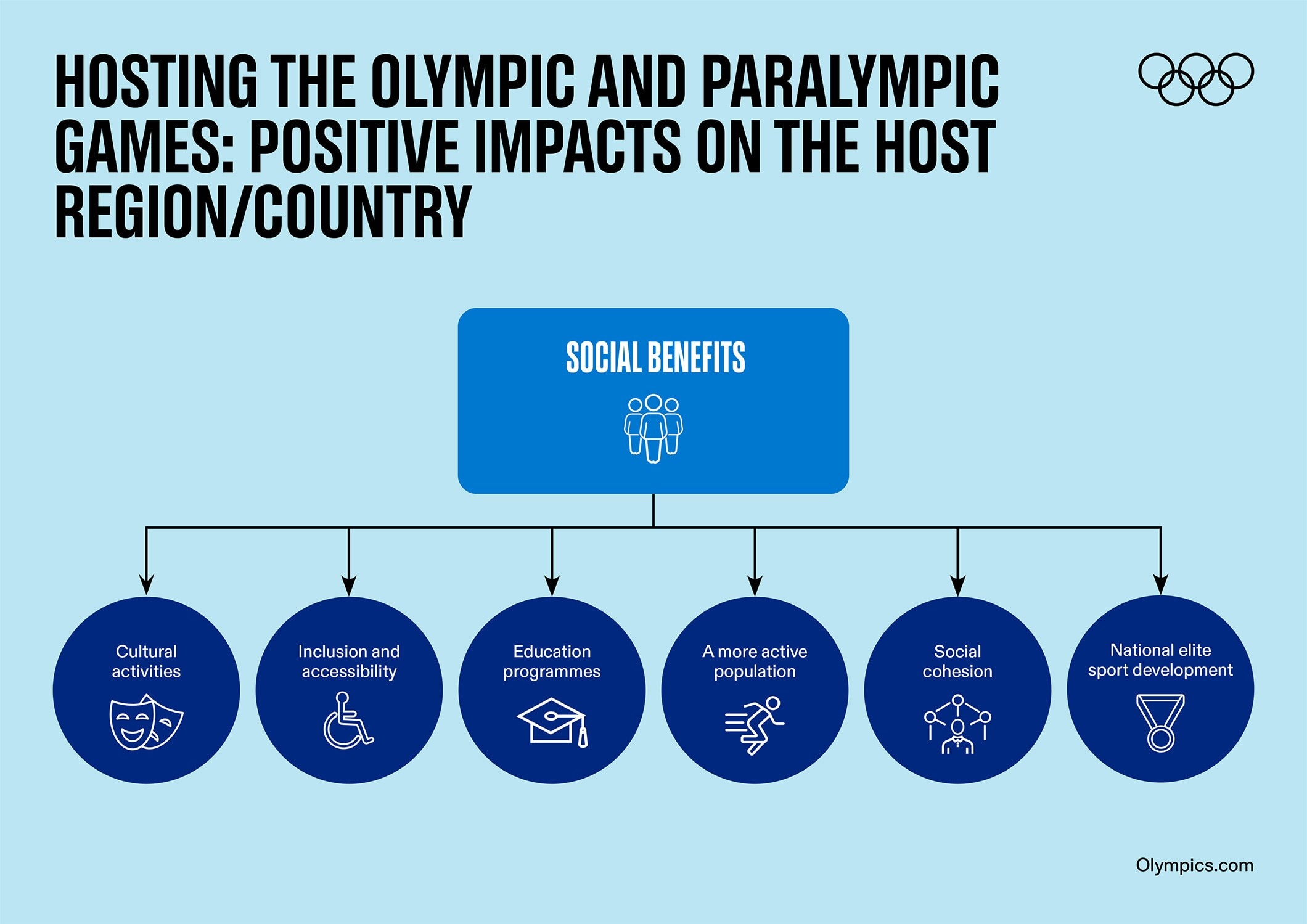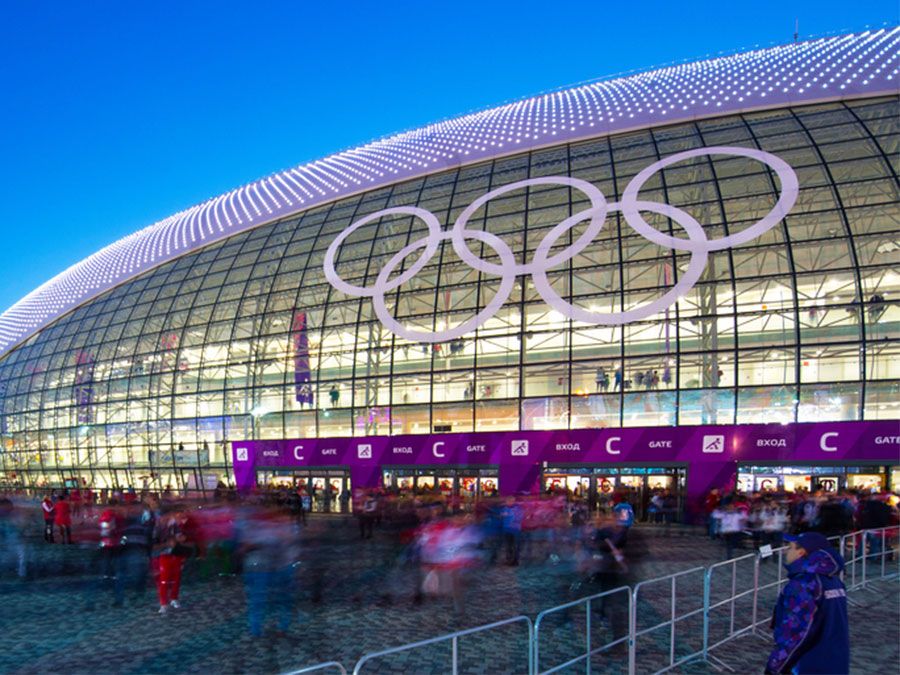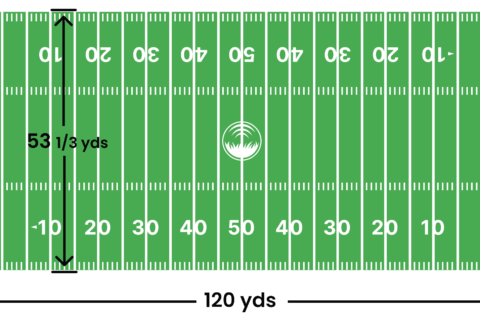The Olympic Games are a grand event. Cities around the world compete to host them. But which cities had the largest and smallest populations when they hosted?
The Olympic Games: A Brief Overview
The Olympic Games began in ancient Greece. They were revived in the modern era in 1896. Cities from many countries have hosted the games since then.
City with the Largest Population
Let’s explore the city with the largest population when it hosted the Olympics.
Tokyo, Japan
Tokyo hosted the Olympics in 1964 and 2020. When Tokyo hosted in 2020, it had a huge population. It was the largest city to host the Olympics.
In 2020, Tokyo’s population was over 37 million. This is a massive number! Tokyo is a bustling city with lots of people and activities.
Why Tokyo Stands Out
- High Population Density: Tokyo has many people in a small area.
- Advanced Infrastructure: Tokyo has great transportation and buildings.
- Cultural Hub: Tokyo is rich in history and culture.

Credit: www.visualcapitalist.com
City with the Smallest Population
Now, let’s look at the city with the smallest population when it hosted the Olympics.
Lake Placid, Usa
Lake Placid hosted the Winter Olympics in 1932 and 1980. It is a small village in New York State.
When Lake Placid hosted the Olympics in 1932, its population was just over 2,500. This makes it the smallest host city in Olympic history.
Why Lake Placid Is Unique
- Small Community: Lake Placid is a tight-knit village.
- Beautiful Scenery: It is surrounded by stunning mountains and lakes.
- Winter Sports Hub: Lake Placid is famous for winter sports.
Comparison Table
| City | Country | Year Hosted | Population |
|---|---|---|---|
| Tokyo | Japan | 2020 | Over 37 million |
| Lake Placid | USA | 1932 | Over 2,500 |

Credit: olympics.com
Why Population Matters
The population of a host city affects the Olympics. A large population means more resources and infrastructure. A small population means a close-knit community and unique challenges.
Large Population Benefits
- More Resources: Big cities have more money and facilities.
- Better Infrastructure: They have advanced transportation and buildings.
- More Accommodations: There are many hotels and places to stay.
Small Population Benefits
- Community Spirit: Small towns have a close-knit feeling.
- Unique Experience: They offer a different, charming Olympic experience.
- Less Congestion: Fewer people means less traffic and crowds.
Other Notable Host Cities
Many other cities have hosted the Olympics. Here are a few notable ones.
Beijing, China
Beijing hosted the Olympics in 2008 and will host again in 2022. It is one of the world’s most populous cities.
Atlanta, Usa
Atlanta hosted the Summer Olympics in 1996. It is a major city in the United States with a large population.
Innsbruck, Austria
Innsbruck hosted the Winter Olympics in 1964 and 1976. It is a charming city with a smaller population compared to big capitals.
Conclusion
The Olympic Games have been hosted by cities both large and small. Tokyo, with its enormous population, and Lake Placid, with its tiny community, are two extreme examples.
Both types of cities bring unique experiences to the games. Whether big or small, each host city contributes to the rich history of the Olympics.








